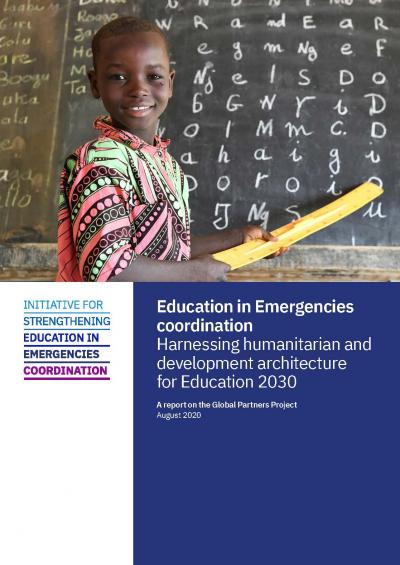Education in Emergencies coordination: Harnessing humanitarian and development architecture for Education 2030
This report presents learning and recommendations emerging from the Global Partners Project (GPP), an initiative to strengthen education in emergencies (EiE) coordination.
This report presents a unique, joint perspective on EiE coordination that has emerged from the project evidence base and experience. It focuses on what we see as an overarching coordination challenge for the decade ahead: the systemic disconnect between internally displaced person (IDP) and refugee coordination systems – and between humanitarian and development coordination systems, which can have a negative impact on the timeliness, efficiency and quality of humanitarian responses.
This report aims to provide a basis for a shift from coordination systems that function independently to coherent, joined-up education sector coordination that improves education outcomes for crisis-affected children and youth. It offers evidence emerging from the ODI studies on compartmentalised coordination systems as well as good practices, and concludes with five practical steps towards changing our siloed ways of working.
The report draws upon the evidence base collected in the ODI reports, consultations with a wide range of stakeholders and the project team’s analysis and experience. While the ODI synthesis report summarises key findings from the research, this report presents a practice-oriented analysis and a way forward for the continued partnership between the GEC, UNHCR and INEE. We hope that its key messages and recommendations will also engage our partners in supporting these changes at global and local levels.




